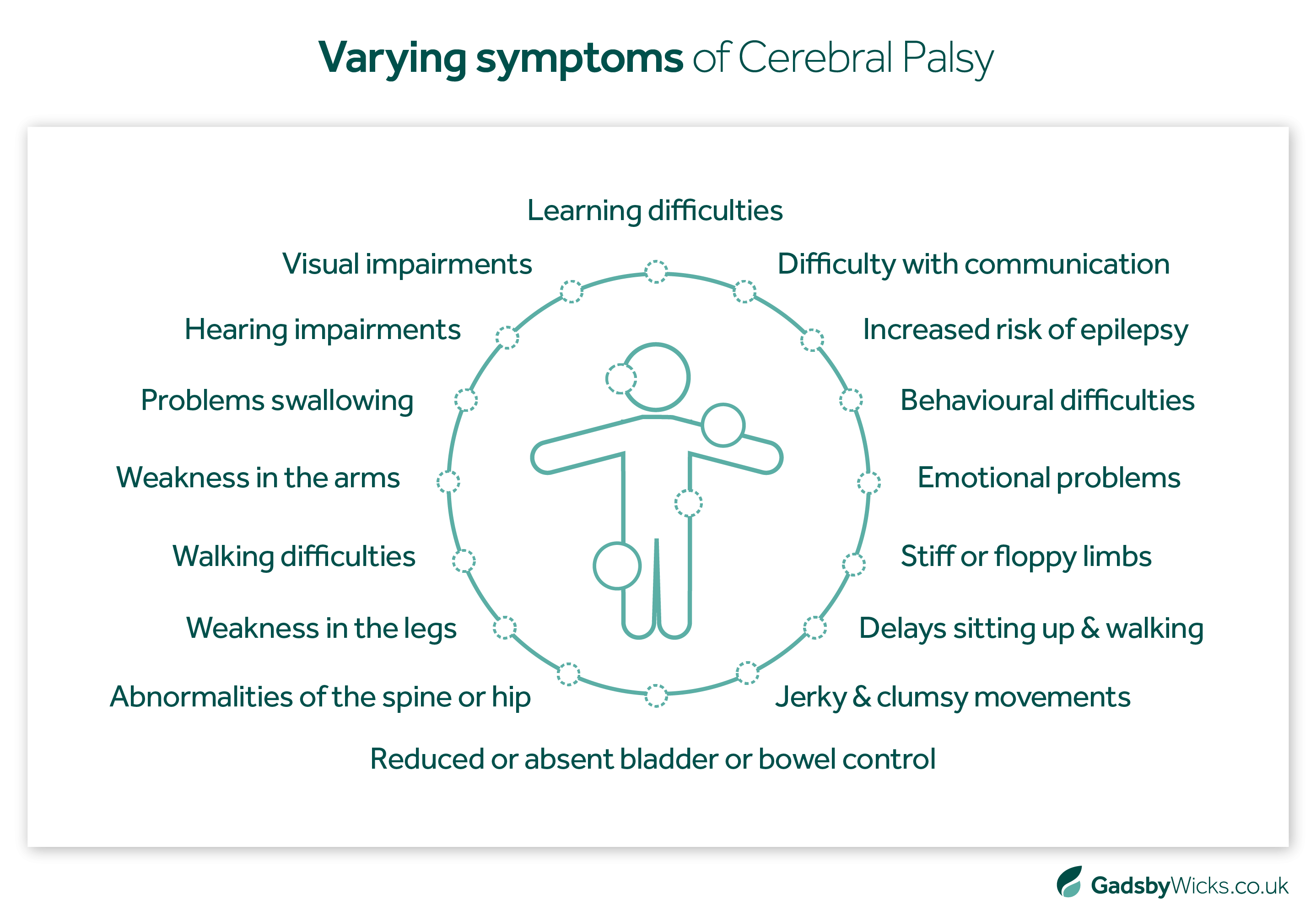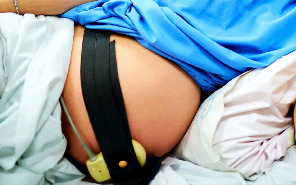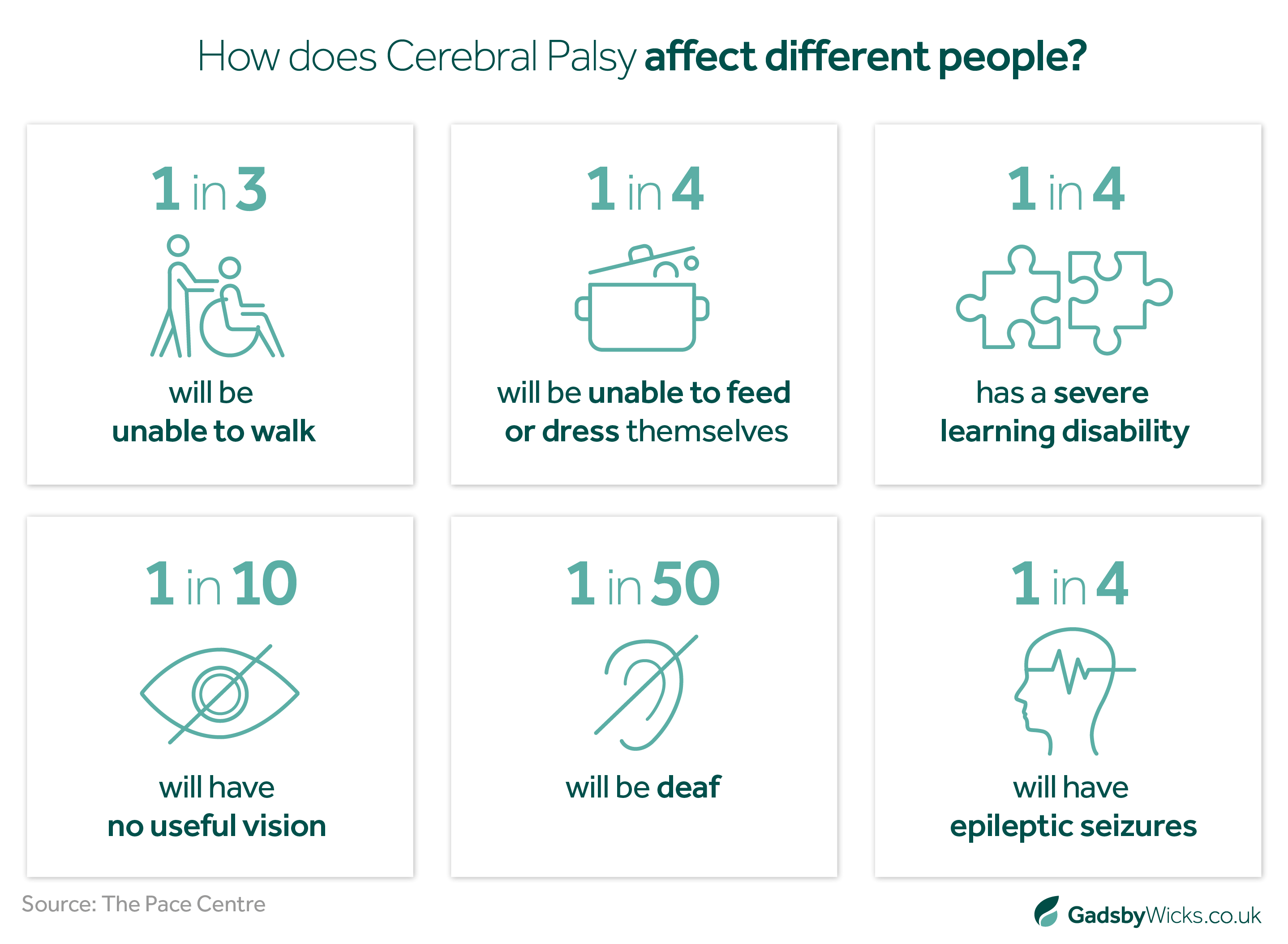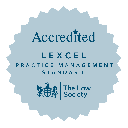- Home >
- Birth Injury Claims >
- Cerebral Palsy Claims
Cerebral Palsy is a life-limiting condition that can dramatically alter someone’s development. So if mistakes by a doctor or midwife cause your child to suffer this lifelong disability, we will fight for your right to justice.
For over 30 years we have supported families through every step of Cerebral Palsy claims, and won millions in compensation to benefit our clients’ quality of life. Trust our compassionate, specialist solicitors to help you ease the financial pressure of this devastating injury.

Do you have a Cerebral Palsy claim?
Cerebral Palsy is a neurological condition caused by brain damage sustained before, during or shortly after birth. Around 1 in 400 babies are born with it every year, and it can dramatically impact a person’s physical and mental welfare for life, and require round-the-clock care.
While Cerebral Palsy sometimes cannot be prevented, sadly mistakes made during pregnancy or childbirth can turn what should have been a healthy birth into a lifelong struggle. If this has happened to your child, we are the legal experts you can rely on to achieve a successful Cerebral Palsy claim.

The specialist Cerebral Palsy claims solicitors for Essex & East Anglia
Our accredited Cerebral Palsy claims solicitors know how significant this injury can be. Since 1993, we’ve backed clients through these multi-year cases, and recouped millions in compensation for their families.
No matter how complex your claim, we will thoroughly investigate what happened, help you access interim payments, and achieve a settlement that secures your child’s future. We do all this on a ‘no win, no fee’ basis – you never pay us anything if we don’t win your claim.
How much could your Cerebral Palsy claim be worth?
What does our Cerebral Palsy claims process look like?

A free initial consultation
Call us, request a callback or complete our online form and we’ll assess if you have a valid medical negligence claim.

Funding your claim
Discover the ways we can fund your claim without you paying a penny at any stage of the process.

Investigating evidence
We gather medical records, witness statements and more to learn what happened to you and prove your claim.

Instructing independent medical experts
We work with impartial, experienced medical experts to establish whether your injuries were due to substandard medical care.

Valuing your claim
We assess your health and financial losses to accurately estimate how much compensation your claim is worth.

Presenting your case
We contact the Defendants and the Courts on your behalf to set out your allegations and receive a response.

Negotiating a settlement
We work to achieve a fair settlement for you outside the courtroom – this is how 96% of our cases end.

Preparing for Trial
If we must proceed to Trial, we fully prepare you for what to expect so you receive the right result in court.
FAQs about Cerebral Palsy claims
What is Cerebral Palsy?
Cerebral Palsy is a term that describes a group of non-progressive conditions caused by an acquired brain injury (ABI) to the developing brain. This brain damage can occur before, during or shortly after delivery.

The complex nature of symptoms of Cerebral Palsy can vary greatly depending on how the brain has been injured, where the brain was injured, and when the injury occurred. These can include:
- Learning difficulties
- Communication issues
- Behavioural difficulties
- Stiff or floppy limbs
- Jerky or clumsy movements
- Weakness in the arms and legs
- Walking difficulties
- Visual and hearing impairments
Different types of Cerebral Palsy include:
- Spastic Hemiplegia
- Spastic Diplegia
- Ataxic Cerebral Palsy
- Athetoid (Dyskinetic) Cerebral Palsy
- Spastic Quadriplegia
When can medical negligence be blamed for Cerebral Palsy?
During the antenatal period, if a healthcare professional fails to adequately monitor the health and welfare of the mother or baby, they may fail to identify signs that indicate the baby is at risk.
For example, if a baby’s growth rate sharply declines from its previous trajectory, this could signal that the placenta has separated too early from the uterus, depriving the baby of oxygen and nutrition. If this is overlooked, or an intervention is wrongly delayed, this may be considered a breach of duty of care.
There are also incidents of supervised neglect or negligent treatment. This is where a healthcare professional records potential warning signs in their notes, but does not recognise that these are warning signs. This can again result in avoidable delays that prevent an intervention until it is too late.
During birth, a delayed reaction to problems like a wrapped umbilical cord, preeclampsia or shoulder dystocia, or failure to perform the correct manoeuvres or techniques in these circumstances, could lead to a medical negligence case if the baby suffers injuries as a result.
As specialist medical case lawyers in all forms of birth injury claims, including Erb's Palsy claims and all general injury to baby and injuries to mothers during birth.
In every case we thoroughly investigate the actions or inactions of the healthcare professionals involved in your situation, to determine whether you have a valid Cerebral Palsy claim.
Additionally, if there is more than one potential cause of a claimant’s injury, and one or more of those is non-negligent, but medical science cannot determine with absolute certainty what the main cause of a claimant’s injury is, then a claimant is entitled to 100% of the compensation.
This can involve factors for oxygen starvation, surgical negligence, misdiagnosis and delayed treatments.
How long can Cerebral Palsy negligence claims take to settle?
There is no standard duration for a Cerebral Palsy compensation claim as every case is unique. However, we would advise that it will often take upwards of 6 years to investigate a birth injury claim, determine liability and quantify the final settlement.
In many cases, it will be impossible for medical experts to assess the full extent of a child’s injury, and the long-term care and support they will require, until several years after the incident. Once a claim starts, a claimant may request a stay of proceedings to allow for the nature of the injury to be determined, which influences the final settlement.
During this wait, claimants can apply for interim payments. If the defendant has admitted liability, been found liable for some harm caused to the claimant, or the Court considers it very likely that the defendant will be found liable, these payments can allow families to set up a care regime that works for them, move to more suitable accommodation and start beneficial therapies and treatments before the settlement is reached.
View our National and Essex Medical Negligence Statistics post for more information.
Is there a time limit to make a Cerebral Palsy negligence claim?
As the claimant in a Cerebral Palsy claim will typically be under 18, they have until their 21st birthday to make a claim. There is no time limit for anyone who is mentally incapacitated.
In special circumstances, the courts sometimes allow claims outside these time limits. However, we would always advise that there is no benefit to delaying an injury compensation claim, and it is helpful to get in touch with legal services as soon as possible.
What is the average settlement for Cerebral Palsy claims?
There is no single answer to the amount of compensation that a claimant will receive following a Cerebral Palsy claim. Generally speaking, most of the compensation awarded will be based on the claimant’s long-term care requirements.
Due to the long-term care that a claimant often requires after a serious birth injury, it is common for compensation to be awarded as both a lump sum and annual periodic payment orders (PPOs). These annual payments help ensure that the claimant will always receive the financial support they need to cover their care requirements.
The below case studies offer insight into the potential value of Cerebral Palsy claims:
What can compensation for Cerebral Palsy help with?
Someone with Cerebral Palsy can live a happy, fulfilling life despite the challenges it presents. However, much of that can depend on the compensation that you receive.
Following a successful Cerebral Palsy claim, the compensation awarded can be applied in a variety of ways to ensure the continued safety and welfare of the child and also the family by targeting their specific needs. This can include:
- Hiring a professional case manager to coordinate the claimant’s care and therapy package, consult with architects, etc.
- Adaptations to the family home – stairlifts, ramps, wet rooms, hoist systems, garages, increased storage space, etc.
- Acquiring more suitable accommodation in line with the claimant’s needs
- Hiring live-in care assistants to provide full-time care
- Aids and equipment such as wheelchairs, assistive technology and special seating
- Treatments and therapies to maximise mobility and minimise discomfort – physiotherapy, hydrotherapy, speech and language therapy, corrective surgeries, etc.
- The salary of the Deputy appointed by the Court of Protection
- Additional holiday and travel expenses
- The cost of loss of earnings the claimant may have received based on the achievements and academic performance of their parents and siblings
Contact our expert Cerebral Palsy claims solicitors
If you or a loved one have experienced negligence leading to Cerebral Palsy and would like to discuss your options, our team is here to listen and advise you on your next steps.

Lexcel accredited medical negligence claims solicitors
We are proud to be a Lexcel-accredited practice. The accreditation is a mark of quality and comes directly from the Law Society.
A recent assessment described us as a “Centre of Excellence” and we continue to operate to the highest standards across all main areas of our field. These include client care, case management, financial management, structure and strategy, people management, risk management, information management and file management.










